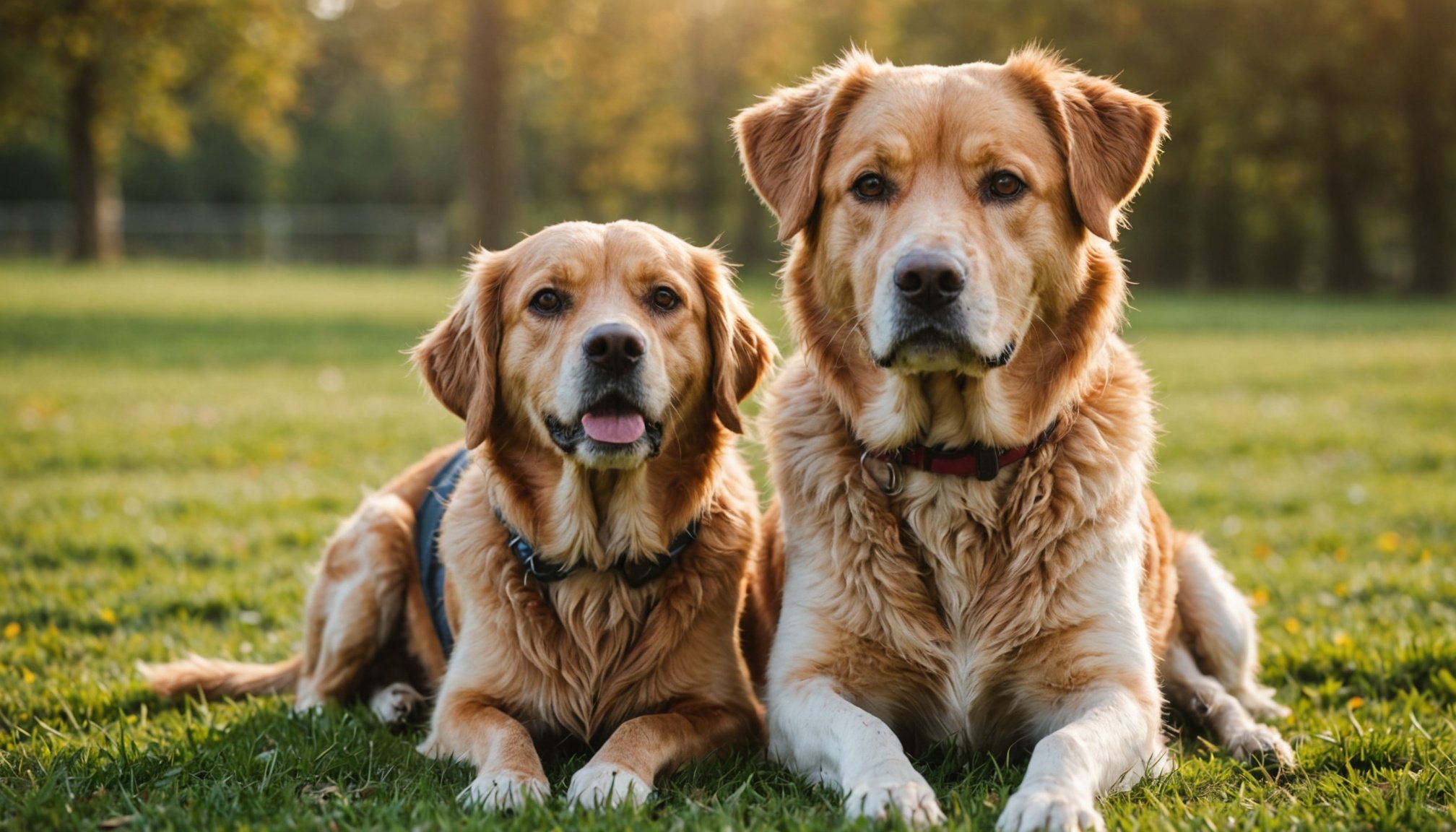As our beloved dogs age, they become more susceptible to a variety of health issues that can affect their quality of life. Owning a senior pet dog requires a keen understanding of the changes they go through in their later years. Senior dogs, typically classified as those over the age of seven, may face a range of health problems, including behavioral changes, weight issues, and chronic diseases. Being proactive in understanding these common health issues can help you provide the best care possible for your aging canine companion. In this article, we will explore the prevalent health concerns in senior dogs, the importance of regular veterinary visits, and practical steps you can take to help your pet thrive in their golden years.
Understanding Common Health Issues in Senior Dogs
As dogs age, they often encounter various health issues that can significantly impact their daily lives. Common problems include arthritis, dental disease, and obesity. Recognizing these issues early can lead to effective management and treatment, enhancing your dog’s overall well-being.
Also read : Ultimate guide to the best wildlife cameras for spotting nighttime creatures in your uk garden
One prevalent issue is arthritis, which affects many senior dogs due to the natural wear and tear on their joints. This condition can lead to pain, decreased mobility, and changes in behavior. If you notice your dog hesitating to jump, limping, or having difficulty standing up, these may be signs of arthritis.
Another common problem is dental disease. Older dogs are at a higher risk for periodontal diseases, which can lead to pain and tooth loss. Regular dental check-ups with your veterinarian are essential in preventing and managing these issues. You should also consider dental care at home, such as brushing their teeth and providing dental chew toys.
Also to read : Navigating the risks of dog walking around farm animals in the english countryside
Obesity is another critical health concern for senior dogs. As their metabolism slows down, they may become less active, leading to weight gain. Maintaining a healthy weight is crucial, as obesity can exacerbate other health problems, particularly joint issues and diabetes. Paying attention to portion sizes and providing regular exercise can help keep your senior dog at a healthy weight.
In addition to these conditions, older dogs may also face issues such as heart disease, diabetes, and kidney problems. Each of these diseases requires careful monitoring and management. Regular veterinary visits are vital for early detection and treatment of these common health problems.
Overall, being aware of these common health issues can help you take proactive steps in caring for your senior dog.
The Role of Regular Veterinary Check-ups
Regular veterinary check-ups play a crucial role in maintaining the health of your senior dog. As pets age, their bodies undergo significant changes that can lead to various health complications. By scheduling routine visits to your veterinarian, you ensure that potential health issues are caught early and managed effectively.
During these check-ups, your vet will perform comprehensive examinations, which may include blood tests, urinalysis, and other diagnostic tools. These tests can help identify underlying problems such as kidney disease, diabetes, or thyroid issues, which are more common in older dogs. Early detection is key to successful treatment and can significantly improve your dog’s quality of life.
Additionally, these visits allow your veterinarian to discuss important aspects of your dog’s care. They can provide advice on nutrition, exercise, and weight management tailored to your pet’s needs. With senior dogs, dietary adjustments may be necessary to ensure they receive the appropriate nutrients without excess calories.
Vaccinations and preventive care should also be addressed during these visits. Senior dogs may require different vaccines or more frequent parasite screenings to protect them from diseases. Keeping your dog up-to-date on vaccinations can prevent serious health issues, especially as their immune systems may become weaker with age.
Moreover, your veterinarian can help guide you in managing any chronic conditions your senior dog may have. This could involve medication management, alternative therapies, or recommendations for joint support supplements. By maintaining open communication with your vet, you can make informed decisions about your dog’s health and well-being.
In summary, regular veterinary check-ups are not just a formality; they are a vital component of your senior dog’s health management plan. Prioritizing these visits can lead to a longer, healthier life for your furry friend.
Weight Management and Nutrition for Older Dogs
Proper nutrition and weight management are paramount in ensuring the health of senior dogs. As dogs age, their metabolic rate generally decreases, resulting in the need for fewer calories. This shift often leads to weight gain, which can exacerbate existing health issues or lead to new ones.
To manage your dog’s weight effectively, it is essential to feed them a balanced diet that caters specifically to their age group. Senior dog foods usually contain fewer calories and higher fiber content to help maintain a healthy weight while still providing the necessary nutrients. Look for foods that are rich in quality protein, omega fatty acids, and antioxidants, as these can help support your dog’s immune system and joint health.
Portion control is another vital aspect of weight management. It’s easy to overfeed our pets, especially when they give us those pleading looks. Use measuring cups to ensure you’re providing the correct amounts based on your dog’s specific needs and follow your veterinarian’s recommendations. Avoid giving table scraps, as many human foods can be high in calories and unhealthy for dogs.
Incorporating regular exercise into your senior dog’s routine is also critical. While older dogs may not be able to engage in vigorous activities like they once did, gentle walks and light play sessions are still beneficial. Regular physical activity helps maintain a healthy weight, strengthens muscles, and promotes joint health. Be mindful of your dog’s limitations; consult your veterinarian for advice on appropriate exercise regimens.
Lastly, keep an eye out for signs of weight-related problems, such as difficulty getting up, excessive panting, or reluctance to engage in physical activity. Addressing these issues promptly can prevent more serious health conditions down the line.
In summary, weight management and proper nutrition are vital aspects of senior dog care. By taking proactive steps in these areas, you can help your dog enjoy a longer, healthier life.
Behavioral Changes in Senior Dogs and Their Impact
As dogs age, they often experience significant behavioral changes that can be concerning for pet owners. Understanding these changes is essential for providing the right support and care. In many cases, behavioral shifts can be linked to underlying health problems, cognitive decline, or changes in their environment.
One common issue in senior dogs is cognitive dysfunction syndrome (CDS), akin to dementia in humans. Symptoms may include confusion, disorientation, disrupted sleep patterns, and altered social interactions. You might notice your dog becoming less responsive to commands, wandering aimlessly, or forgetting previously learned behaviors. Recognizing these signs early can help you communicate your concerns to your veterinarian, who may suggest specific interventions or therapies.
Changes in behavior can also stem from physical discomfort. Conditions like arthritis can lead to increased irritability or withdrawal. If your dog is in pain, they may become less social or exhibit signs of aggression when approached. Regular vet check-ups are crucial for identifying pain-related issues and managing them effectively with appropriate treatments.
Moreover, senior dogs may become more anxious as their routines change or as they face the loss of companions. Anxiety can manifest in various ways, including excessive barking, destructive behavior, or house soiling. Providing a stable environment, maintaining routines, and offering comfort through toys or safe spaces can help alleviate these issues. In some instances, your veterinarian may recommend behavioral therapy or medications to help manage anxiety-related problems.
Socialization remains important for senior dogs. Encourage interactions with other pets and humans to help combat feelings of loneliness and isolation. Keeping your dog engaged and social can significantly improve their mental well-being.
In conclusion, understanding the behavioral changes in senior dogs is crucial for providing appropriate care. By being observant and responsive to these changes, you can improve your dog’s quality of life and deepen your bond with them.
Caring for a senior dog requires attention, patience, and a comprehensive understanding of their unique health needs. By recognizing the common health issues that arise with aging, ensuring regular veterinary check-ups, managing weight and nutrition, and being mindful of behavioral changes, you can significantly enhance your dog’s quality of life. Your commitment to their health and well-being is vital as they navigate their later years. Remember, while aging can present challenges, it also brings opportunities for deeper connection and love. By prioritizing their needs, you can ensure that your senior pet continues to enjoy a happy and fulfilling life.















